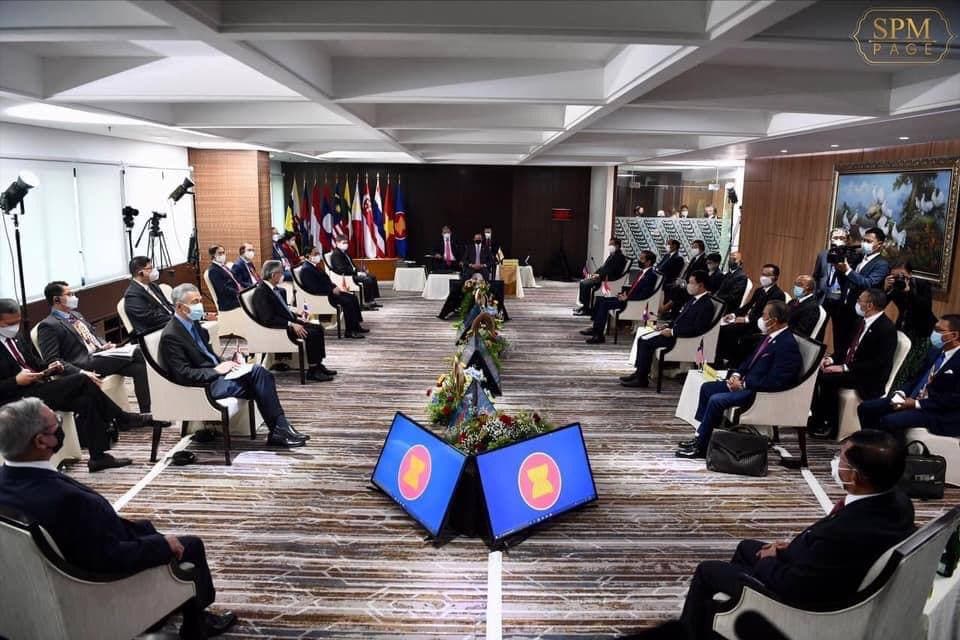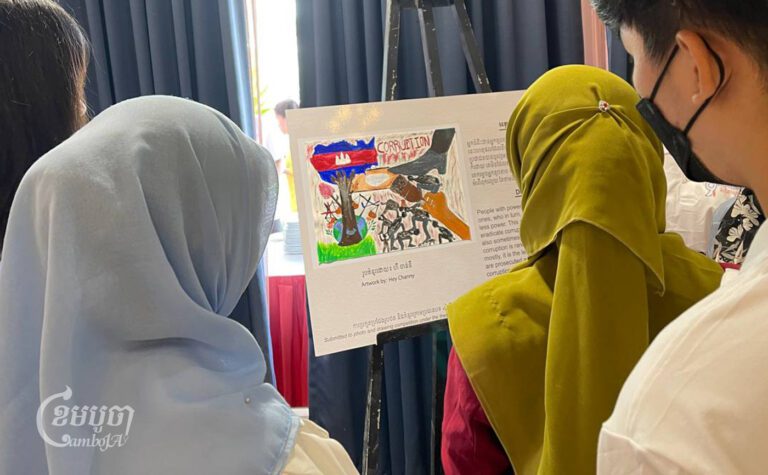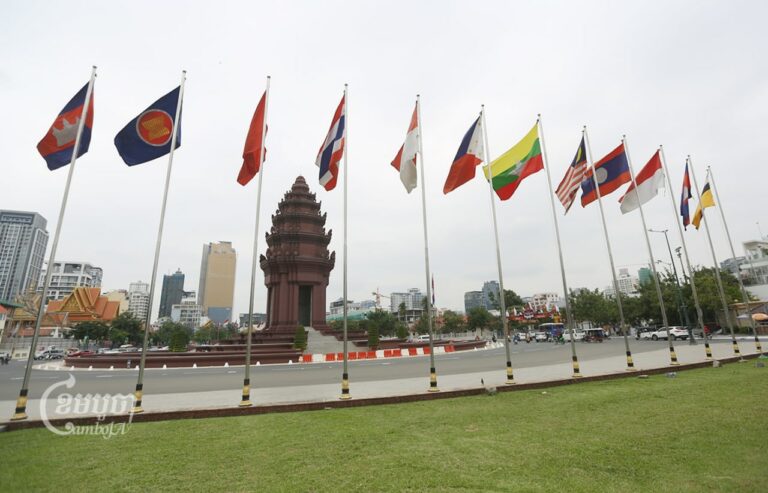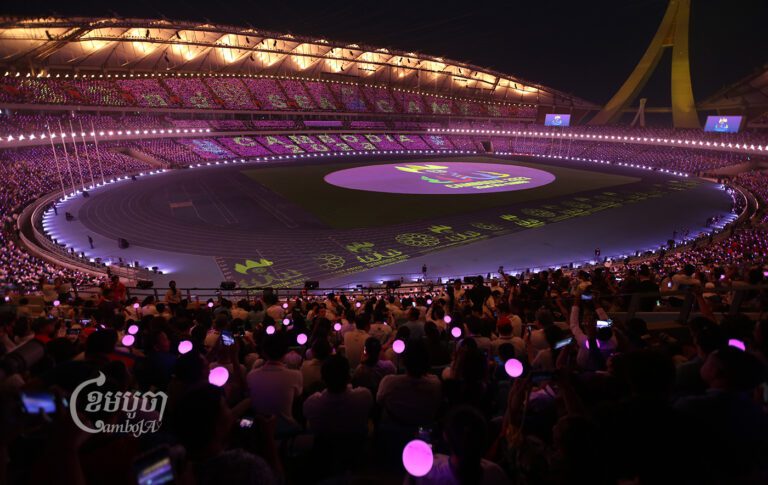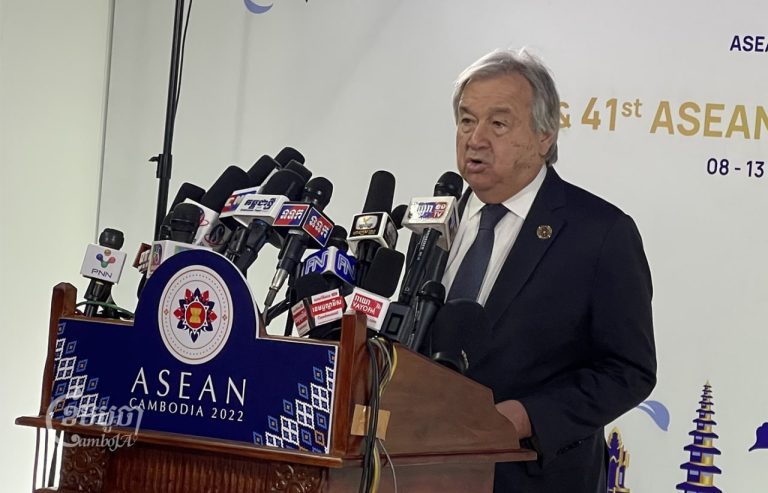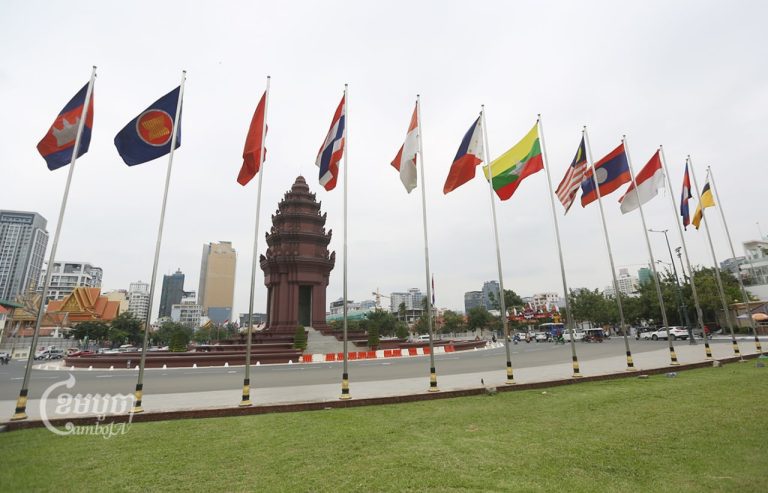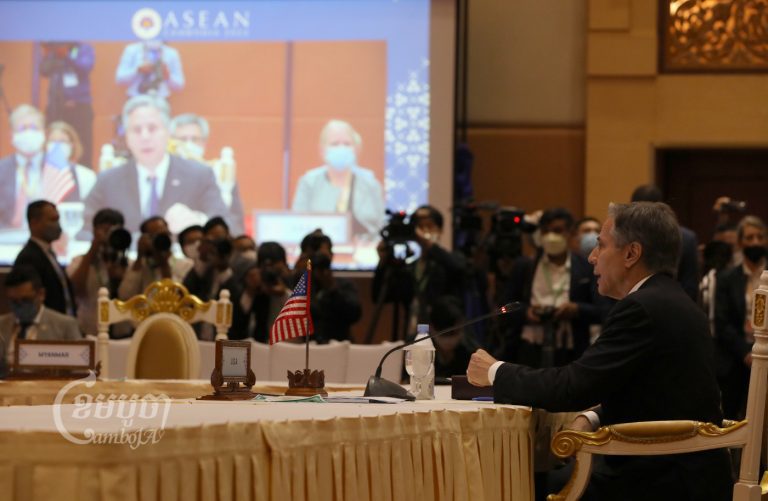National leaders and representatives to ASEAN reached a five-point consensus Saturday addressing Myanmar’s post-coup landscape, urging an “immediate cessation of violence” in the country.
In the first in-person ASEAN summit since the onset of the COVID-19 pandemic, leaders gathered for a special meeting in Jakarta with Myanmar’s military leader, General Min Aung Hlaing, to discuss the potential for resolution of the country’s ongoing political crisis. Min Aung Hlaing, head of the national military, led a February 1 coup to displace the country’s elected civilian leadership and reinstate a period of rule by the armed forces.
Cambodian Prime Minister Hun Sen, one of the longest-serving leaders in the world, said in a statement on Facebook posted after the summit that his country would readily assist ASEAN in mitigating the situation in Myanmar.
“The ASEAN leaders stressed the importance of the need to quickly restore the situation in Myanmar for the well-being of the people,” Hun Sen wrote.
He added that leaders of the regional bloc have important steps to ease tensions and promote a dialogue in that country. At the same time, Hun Sen resasserted Cambodia would adhere to the bloc’s principle of non-interference in the internal affairs of member states, a guiding value critics say enables Southeast Asian leaders to overlook rights abuses such as those committed by the Myanmar military.
According to Myanmar civil society groups, security forces have since the coup arrested more than 4,000 peaceful protestors, more than 3,000 of whom are still in detention. Members of the military and police have killed an estimated 700-plus people protesting the sudden toppling of their democratic state. Security forces have also killed bystanders and children, including some as young as five years old.
Philippines President Rodrigo Duterte and Laos Prime Minister Phankham Viphavanh did not attend the summit. Nor did Thailand Prime Minister Prayuth Chan-o-cha, who himself led a military coup in 2014 and then became a junta leader.
After the meeting, Indonesian President Joko Widodo directed some comments specifically at the military. Rather than just appealing to a general climate of violence in Myanmar, the Indonesian president urged the military itself to stop the use of violence and to release political prisoners.
The five-point ASEAN consensus is written as follows: First, there shall be immediate cessation of violence in Myanmar, and all parties shall exercise the utmost restraint. Second, constructive dialogue among all parties concerned shall commence to seek peaceful solutions in the interest of the people. Third, a special envoy of the ASEAN Chair shall facilitate the mediation of dialogue process, with the assistance of the Secretary-General of ASEAN. Fourth, ASEAN shall provide humanitarian assistance through AHA center. Fifth, the special envoy and delegation shall visit Myanmar to meet with all parties concerned.
Dr. Sasa, the spokesperson for civilian-backed National Unity Government and its Union Minister of International Cooperation, welcomed the ASEAN consensus in a post-summit statement.
“We eagerly await the engagement by the ASEAN Secretary General as mandated by this meeting,” Sasa wrote, adding that members of the civilian government “appreciate strong words from President Widodo of Indonesia calling for the release of our heroes.”
“We look forward to firm action by ASEAN to follow up its decision and restore our democracy and freedom for our people and the region,” Sasa wrote.
ASEAN civil society organizations have demanded the Myanmar junta to end its killings of civilians while campaigning member states of the bloc to refuse recognition of military generals as legitimate leaders of the state.
In addition to the violence in urban centers, the Myanmar military has also used fighter jets to bomb civilians in ethnic-majority areas, including Karen State, resulting in serious casualties. More than 80,000 people in Karen, Kachin and Shan states have reportedly been displaced.
Aung Shin, a local journalist from Myanmar, told CamboJA by Facebook messenger that ASEAN had failed to directly address people who have been brutally killed by the military.
“We do worry that the outcome of the ASEAN summit will give more time and chances for the junta to rule for longer,” he said, adding that leaders should not be “neglecting the junta’s crimes against humanity.”
“We want and expect more pressure on the military junta,” Aung Shin wrote. “Otherwise, there is no chance of restoring democracy.”


